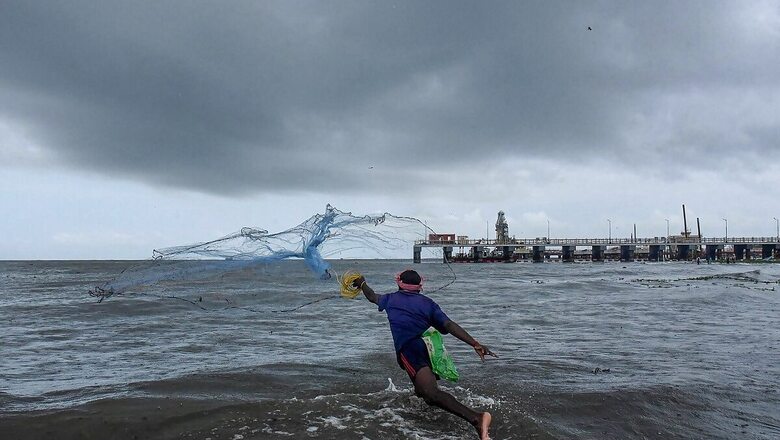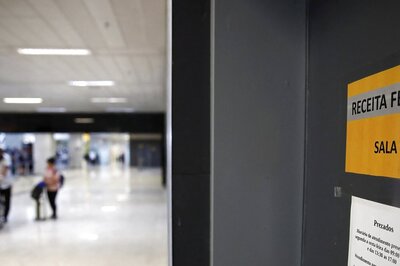
views
As heavy batters, the financial capital, the Brihanmumbai Municipal Corporation (BMC) on Thursday issued an advisory on leptospirosis (a bacterial disease). The civic body warned that due to heavy rain that lashed Mumbai the previous day and the ‘very heavy’ rain which has been predicted in the city, the cases of leptospirosis cases may spike. People are more likely to get infected if they travel, wade through waterlogged roads or walk without wearing gumboots, BMC stated.
Individuals who walk through stagnant water and have injuries in their feet or body parts fall in the ‘moderate risk’ group with leptospirosis.
What is leptospirosis?
A rare bacterial infection, Leptospirosis can pass from animals to humans when an unhealed break in the skin comes in contact with water or soil where animal urine is present. Different types of animals are the carriers of this microbe. But they do not show any symptoms of the disease. Several species of the Leptospira genus of bacteria cause leptospirosis and can progress to conditions such as Weil’s disease or meningitis, which can be fatal.
There is no human-to-human leptospirosis infection and in urban areas, leptospira are found in animals like rats, dogs etc. The infection is spread through injured skin, eyes and nose.
What is this treatment?
For mild cases, the doctor may prescribe antibiotics, such as doxycycline or penicillin. Patients with severe leptospirosis will need to spend time in the hospital and will receive antibiotics intravenously.
Depending on which organs leptospirosis affects, the individual may need a ventilator to help them breathe. If it affects the kidneys, dialysis may be necessary. Intravenous fluids can provide hydration and essential nutrients. If infected, hospital stays may range from a few weeks to several months. This mostly depends on how the patient responds to antibiotic treatment, and how severely the infection damages their organs.
During pregnancy, leptospirosis can affect the fetus. Anyone who has the infection during pregnancy will need to spend time in the hospital for monitoring.
What are the symptoms?
The signs and symptoms of leptospirosis usually appear suddenly, about 5 to 14 days after infection. However, the incubation period can range from 2 to 30 days, according to the CDC. Fever, chills, coughing, diarrhea, vomiting, or both, headache, muscle pain, particularly lower back and calves, rash, red and irritated eyes and jaundice. Signs and symptoms of severe leptospirosis will appear a few days after mild leptospirosis symptoms have disappeared. Symptoms depend on which vital organs are involved. It can lead to kidney or liver failure, respiratory distress, and meningitis. These can be fatal.
Has India Reported Cases of Leptospirosis?
Leptospirosis is endemic in five states and one union territory of India. The endemic states are Gujarat, Maharashtra, Kerala, Tamil Nadu, Karnataka, and Andaman & Nicobar Islands. Gujarat reported 392 cases in 2005 with 81 deaths(mortality:20.6%). Most of the cases were reported from the southern districts of Surat, Navasari & Valsad. Maharashtra reported 2,355 cases in 2005 with 167 deaths. In Kerala, Kolenchery reported 976 cases with a mortality of 5.3%. Calicut reported 282 cases with a mortality of 6%. Seroprevalance in Calicut was 38.1% in high-risk groups. 900 cases were treated in kottayam over a period of 10 years. In Tamilnadu, 2765 cases were reported from Chennai in 2006 from various hospitals. In the recent past, acute renal failure due to leptospirosis has declined from 31% to 7.5% in Chennai.
Read all the Latest News, Breaking News and Coronavirus News here.


















Comments
0 comment